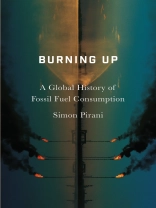Coal, gas and oil have been capitalism’s main fuels since the industrial revolution. And yet, of all the fossil fuels ever consumed, more than half were burned in the last 50 years. Most alarming of all, fossil fuel consumption has grown fastest in the last three decades, since scientists confirmed that it is the main cause of potentially devastating global warming.
In Burning Up, Simon Pirani recounts the history of fossil fuels’ relentless rise since the mid twentieth century. Dispelling explanations foregrounding Western consumerism, and arguments that population growth is the main problem, Pirani shows how fossil fuels are consumed through technological, social and economic systems, and that these systems must change.
This is a major contribution to understanding the greatest crisis of our time.
Tabla de materias
Figures
Tables
Acknowledgements
Units of Measurement
Acronyms and Abbreviations
Introduction
Part I: Contexts
1. Fossil Fuels Before 1950
2. Energy Technologies
3. Energy in Society
4. Fossil Fuel Consumption in Numbers
Part II: Chronologies
5. The 1950s and 1960s: Post-War Boom
6. The 1970s: Crises and Oil Price Shocks
7. Patterns of Electrification
8. The 1980s: Recession and Recovery
9. The 1990s: Shunning the Global Warming Challenge
10. The 2000s: Acceleration Renewed
Part III: Reflections
11. Interpretations and Ideologies
12. Possibilities
13. Conclusions
Appendices
Notes
Further Reading and Bibliography
Index
Sobre el autor
Simon Pirani is Senior Visiting Research Fellow at the Oxford Institute for Energy Studies, and has written widely on Soviet history and energy issues. His books include Burning Up: A Global History of Fossil Fuel Consumption (Pluto, 2018), The Russian Revolution in Retreat (Routledge, 2008) and Change in Putin’s Russia (Pluto, 2009).












